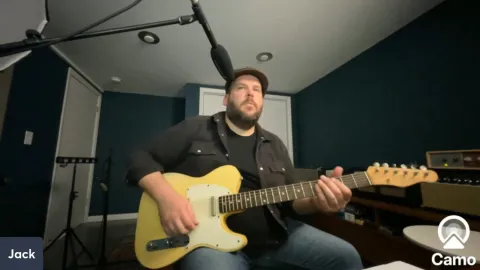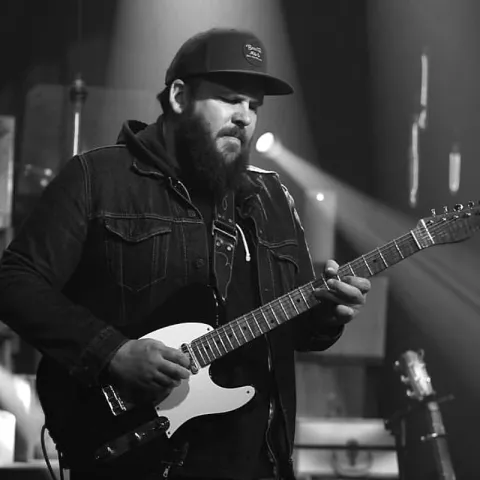I was just vamping over the previous progressions as suggested... it was fun... hit and miss ;-)
Perhaps you remember seeing the video above titled “THIS MAN is my favorite guitar player in the world right now.”
Well nothing has changed. Jack Ruch is quite simply THE player I’m aspiring to become, and he embodies EVERYTHING that I try and teach on Guitargate.
From his buttery lines and perfect voice leading - to his beyond tasteful chord tone soloing - Jack is quite simply astounding. And he absolutely KILLS live. A total professional & Nashville staple, Jack will be teaching you all of the things that he uses in real life, each and every night. You know: TRIADS, CHORD TONES, & MELODIES!

